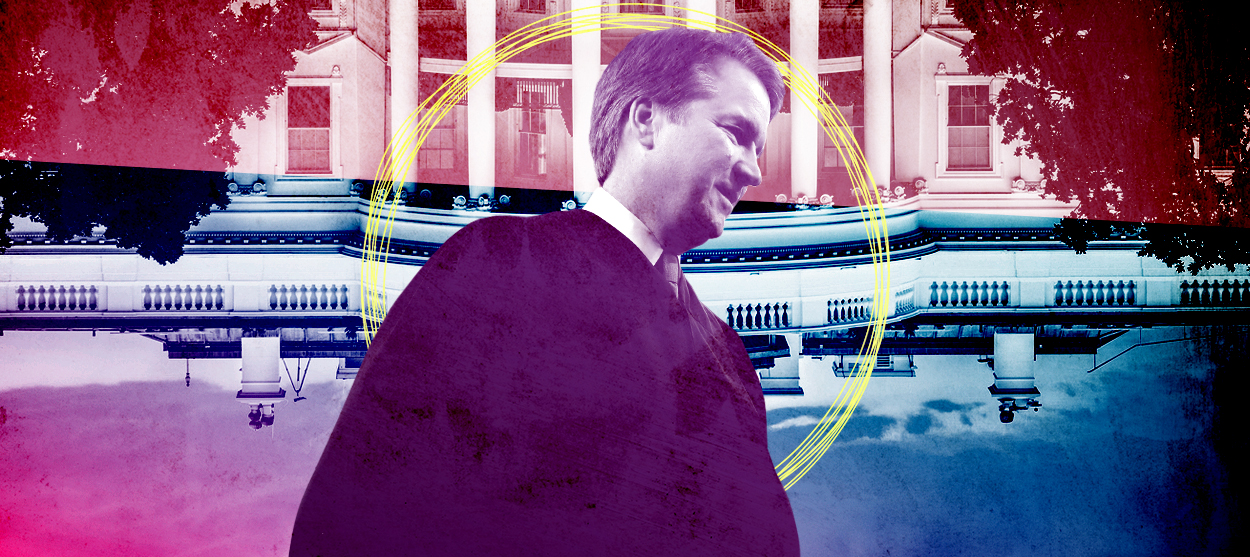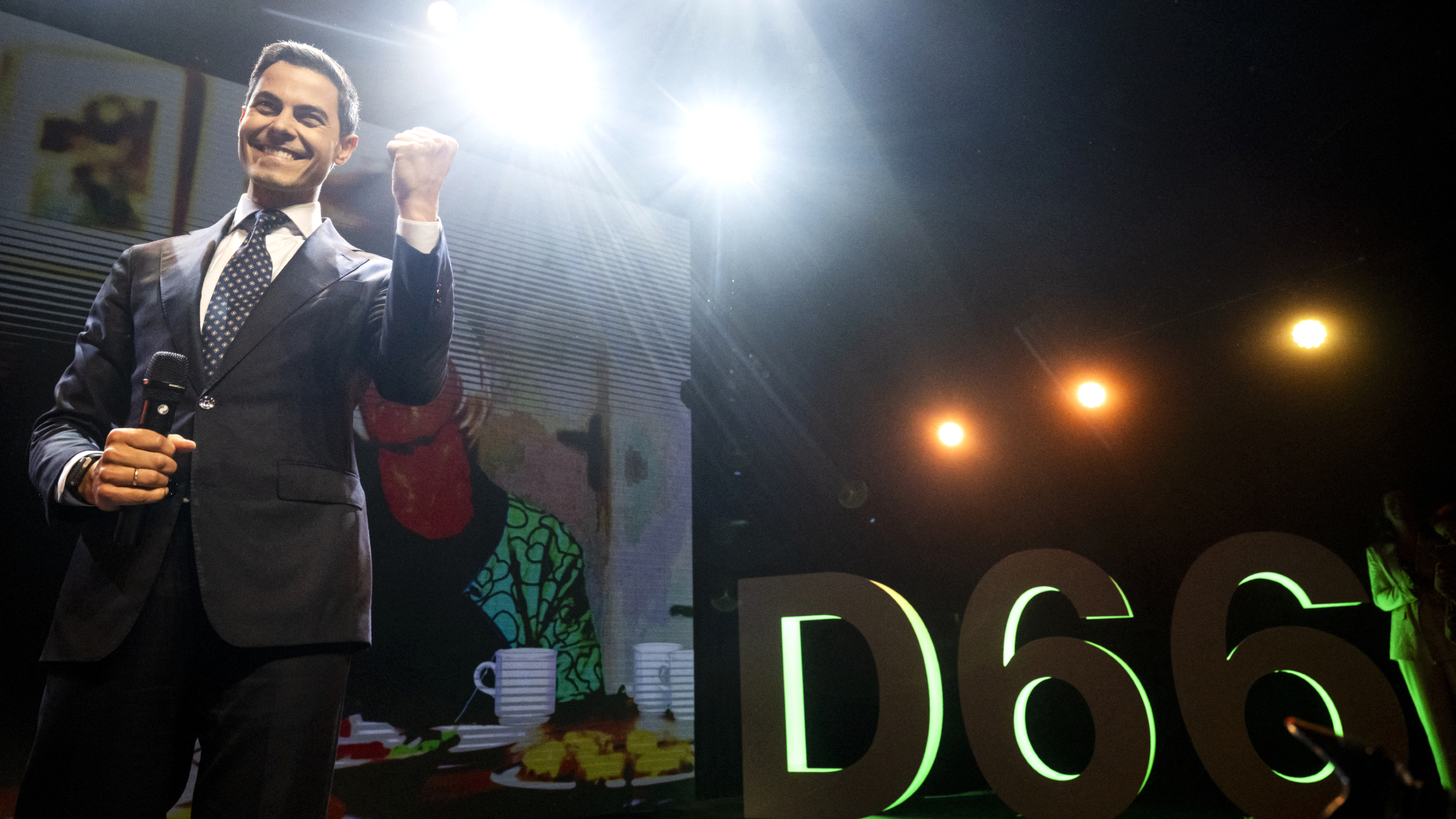How to make an election crisis
If Republicans are going to steal a second term for Trump, this is how they'll do it


A free daily email with the biggest news stories of the day – and the best features from TheWeek.com
You are now subscribed
Your newsletter sign-up was successful
Fun fact: With the confirmation of Amy Coney Barrett, the Supreme Court now contains as many Republican campaign lawyers who worked for George W. Bush on Bush v. Gore — the decision that amounted to election theft, and was so ridiculously partisan that it said itself it should not be cited as precedent — as it does Democrats. Today, as Mark Joseph Stern writes at Slate, at least one of those three justices, Brett Kavanaugh, is now citing Bush v. Gore in a tendentious opinion that clearly signals he is ready to help steal the 2020 election for Donald Trump.
But this is just one aspect of the Republican plot to manufacture a fake crisis on Election Day they can then exploit to overturn American democracy and stuff Trump back into office. They may not succeed, but they are going to try. Whether it works may depend on whether rank-and-file liberals turn out in the streets to defend their democratic rights.
The plot is being laid out in plain sight, and it goes something like this. Thanks to the pandemic, Democrats are voting early and by mail at vastly greater rates than Republicans, providing a potential way to roughly sort out liberal ballots. Thus the first step is to stymie early and mail-in voting as much as possible. Republicans have sued to make mail-in ballots harder to get, to prevent the use of ballot drop-off boxes, to throw out as many mail-in votes as possible, and so on.
The Week
Escape your echo chamber. Get the facts behind the news, plus analysis from multiple perspectives.

Sign up for The Week's Free Newsletters
From our morning news briefing to a weekly Good News Newsletter, get the best of The Week delivered directly to your inbox.
From our morning news briefing to a weekly Good News Newsletter, get the best of The Week delivered directly to your inbox.
Trump operative Louis DeJoy has also deliberately screwed up the Post Office, and so in Wisconsin, for instance, ordinary mail is taking 10 days on average to be delivered. A federal judge recently ruled that in that context, Wisconsin should therefore count ballots that are postmarked by Election Day but received by November 9, so people have a fair chance to get their votes counted. The conservative Supreme Court majority reversed this decision Monday, but did not issue a majority opinion.
Instead there were three concurrences, including one from Justice Brett Kavanaugh that was so sloppy and inaccurate that it only could have come from someone several beers deep, or someone who has roasted his brain from years of mainlining Fox News. In it, Kavanaugh endorses the theory espoused by former Chief Justice Rehnquist in Bush v. Gore — which did not get majority support even in that crackpot opinion — that the Supreme Court can overrule state-level supreme courts on the interpretation of their own state laws. (Federalism!) Kavanaugh cites a legal article that says the opposite of what he implies. He says Vermont has not changed their election laws because of the pandemic when in fact it has, by automatically sending every registered voter a mail-in ballot. And he falsely asserts that states try to "definitively announce" the election results on Election Day, when, in fact, it is media organizations that do that, and almost no state governments are even planning to announce official totals of any kind on Election Day. It always takes weeks to certify the results, and federal law accounts for that precisely to enable a careful count of all ballots. After all, the presidential transition does not even happen until the end of January.
The second prong of the strategy is to prevent the early counting of ballots. In Pennsylvania, state Republicans recently pulled out of negotiations with Gov. Tom Wolf (D) to start an early canvass. In Wisconsin, the party has refused to pass a bill allowing an early count. And in Nevada, the Trump campaign is suing to stop early counting. In effect, the GOP is saying that we absolutely must have a result on election night, two and a half months before the next inauguration, but it would be wrong to start counting ballots as they come in now. The reason is that if the early count can be posted as soon as the polls close, that would likely show an enormous lead for Joe Biden, which would probably never be reversed, unless the polls are way off. But if the early votes are only counted in concert with the Election Day vote, Trump might show a lead for a while.
That leads to the final part of the plan: Republicans will try to stop the count as soon as possible on Election Day, probably by midnight that night. If Trump is showing a lead in the partial vote count late next Tuesday, he will for sure get on Twitter (where he is already shouting that the election needs to be over on Election Day) and Fox News, loudly declare victory, and demand the vote counting be halted while he is still ahead. The campaign will file a raft of nonsense lawsuits trying to force states to stop, so conservative hack judges can get their hooks into the process and start dreaming up pretexts to hand the election to Trump. Then the Republican majorities in the legislatures of Pennsylvania, Wisconsin, and Michigan — themselves the product of rigged district boundaries — will be pressured to certify the fake results, which the Supreme Court will then ratify on the noble principle of "haha, who's going to stop us."
A free daily email with the biggest news stories of the day – and the best features from TheWeek.com
A big tell in the Kavanaugh screed is found in this aside: "States want to avoid the chaos and suspicions of impropriety that can ensue if thousands of absentee ballots flow in after Election Day and potentially flip the results of an election." In fact, as Justice Elena Kagan pointed out in a blistering dissent, until all the votes are counted, there is no result to flip. What's more, Kavanaugh himself made the exact opposite argument during Bush v. Gore proceedings, because late ballots were thought to advantage Bush in Florida in 2000. But North Carolina Republicans are already picking up Kavanaugh's new line as a justification to discard ballots lawfully cast before Election Day, because they think that only their co-partisans should be allowed to vote.
For the last 30 years, conservative Republicans have been pushing the legal envelope further and further and further to cement their own power. In the back of their minds, they know they can't win consistent majorities — they have won the popular vote for president just once in the last 30 years. Biden's margin of victory might be large enough that all these theft strategies don't work, but if they do, Republicans may well have established a new pseudo-democratic system in which voting largely doesn't matter, because their cheating has made it impossible for Democrats to win nationally.
But this strategy depends on rank-and-file Democrats simply sitting and taking it. Furious outbreaks of mass popular protest have toppled tyrannical regimes many times in the past, from France in 1789, to most of Europe in 1848, to most of Eastern Europe in the early 1990s, to the Arab Spring in 2011, or the ongoing mass protests against the dictatorship in Belarus. (Not all of these turned out that well, but it proves the point.)
The Republican Party has already traded perhaps 100,000 American lives, cut short by the pandemic Trump has bungled from the jump, for tax cuts for the rich, three Supreme Court seats, and hundreds of Federalist Society drones on the federal bench. Stealing another term for Trump would likely produce a similarly-sized pile of corpses. If conservatives had any sense, they would be a lot more afraid of torches and pitchforks than they currently are. Democrats may need to remind them soon, or be consigned indefinitely to permanent minority status.
Ryan Cooper is a national correspondent at TheWeek.com. His work has appeared in the Washington Monthly, The New Republic, and the Washington Post.
-
 At least 8 dead in California’s deadliest avalanche
At least 8 dead in California’s deadliest avalancheSpeed Read The avalanche near Lake Tahoe was the deadliest in modern California history and the worst in the US since 1981
-
 Political cartoons for February 19
Political cartoons for February 19Cartoons Thursday’s political cartoons include a suspicious package, a piece of the cake, and more
-
 The Gallivant: style and charm steps from Camber Sands
The Gallivant: style and charm steps from Camber SandsThe Week Recommends Nestled behind the dunes, this luxury hotel is a great place to hunker down and get cosy
-
 ‘Poor time management isn’t just an inconvenience’
‘Poor time management isn’t just an inconvenience’Instant Opinion Opinion, comment and editorials of the day
-
 Kurt Olsen: Trump’s ‘Stop the Steal’ lawyer playing a major White House role
Kurt Olsen: Trump’s ‘Stop the Steal’ lawyer playing a major White House roleIn the Spotlight Olsen reportedly has access to significant US intelligence
-
 Japan’s Takaichi cements power with snap election win
Japan’s Takaichi cements power with snap election winSpeed Read President Donald Trump congratulated the conservative prime minister
-
 How realistic is the Democratic plan to retake the Senate this year?
How realistic is the Democratic plan to retake the Senate this year?TODAY’S BIG QUESTION Schumer is growing bullish on his party’s odds in November — is it typical partisan optimism, or something more?
-
 The billionaires’ wealth tax: a catastrophe for California?
The billionaires’ wealth tax: a catastrophe for California?Talking Point Peter Thiel and Larry Page preparing to change state residency
-
 Bari Weiss’ ‘60 Minutes’ scandal is about more than one report
Bari Weiss’ ‘60 Minutes’ scandal is about more than one reportIN THE SPOTLIGHT By blocking an approved segment on a controversial prison holding US deportees in El Salvador, the editor-in-chief of CBS News has become the main story
-
 Has Zohran Mamdani shown the Democrats how to win again?
Has Zohran Mamdani shown the Democrats how to win again?Today’s Big Question New York City mayoral election touted as victory for left-wing populists but moderate centrist wins elsewhere present more complex path for Democratic Party
-
 Dutch center-left rises in election as far-right falls
Dutch center-left rises in election as far-right fallsSpeed Read The country’s other parties have ruled against forming a coalition
